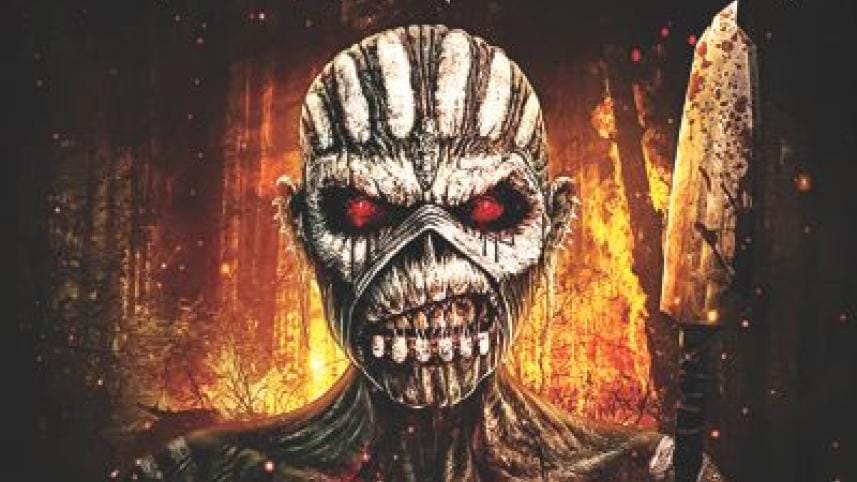Iron Maiden's The Book Of Souls

Iron Maiden transcend their own music. The elaborate live productions, the ubiquitous merch, and the iconic visage of "Eddie" are as much a part of the Iron Maiden aesthetic as Steve Harris' galloping bass lines and Bruce Dickinson's scream. There is a culture to Iron Maiden fandom; the band is like a musical genre unto itself. The 2009 tour documentary Flight 666 puts this into perspective as the band takes its private jet plane to various exotic locales across the lower hemisphere. At each show — many in isolated countries where the band rarely plays — thousands of fans donning Maiden shirts descend in a communal celebration of their favorite band.
Their latest album, The Book of Souls, released 5 years after their slightly mediocre album The Final Frontier, is beyond anything we could've expected from Iron Maiden this far into their career. Billed as their lengthiest and most epic work to date, it's a record that only Iron Maiden could get away with: an hour an a half of wildly theatrical power metal. The Dickinson-penned opener "If Eternity Should Fail", originally intended for his solo album, casually pushes eight minutes, moving from a hooky drop-D riff into bass-driven prog grooves. The chorus is pure fatalist Maiden: "Waiting in line for the end of your time/ If eternity should fail." Having just beaten tongue cancer, Dickinson struggles to carry some melodies, but the rawness of his delivery and the unfiltered production give his vocals a specific catharsis that other, highly polished latter-era Maiden albums have lacked. Three similarly lengthy and progressive tracks make up the core of The Book of Souls and are its strongest cuts. The spiraling arrangements of "The Red and the Black" and the title track are two of Harris' most complex works. But it's as if Dickinson couldn't stand to be outdone, as his 18-minute epic "Empire of the Clouds" closes the album with Iron Maiden's longest song ever, featuring Dickinson on piano for the first time. On their own, these tracks hold up well. Dave Murray's riffs are consistently entertaining, and the general unpredictability of the song structures keeps them engaging, whereas the poppier riff-verse-chorus-solo songs ("Speed of Light", "Death or Glory") come off as slight by comparison.
The Book of Souls is further proof that Iron Maiden is arguably metal's hardest working legacy band. The sheer breadth of the album defies expectation, and though there is some pandering, the songs rarely compromise. Don't go in expecting this to sound like Iron Maiden circa 1984. It's far more angular, far more theatrical, and totally self-aware of its indulgences.
Source: Internet



 For all latest news, follow The Daily Star's Google News channel.
For all latest news, follow The Daily Star's Google News channel.
Comments